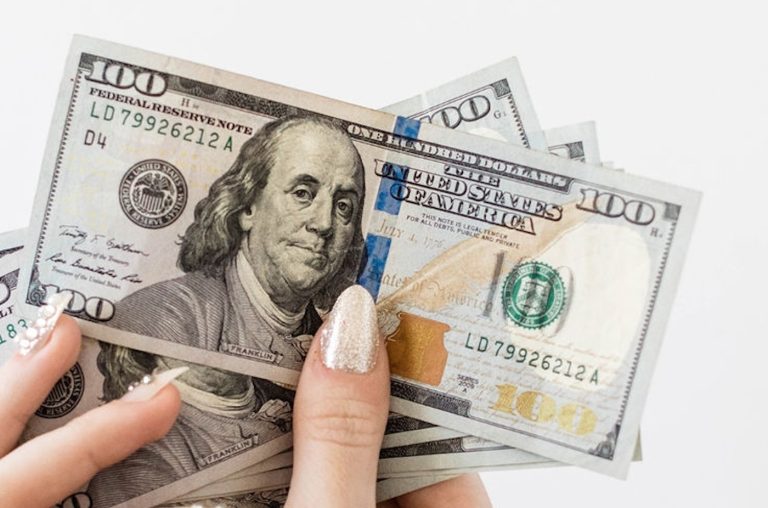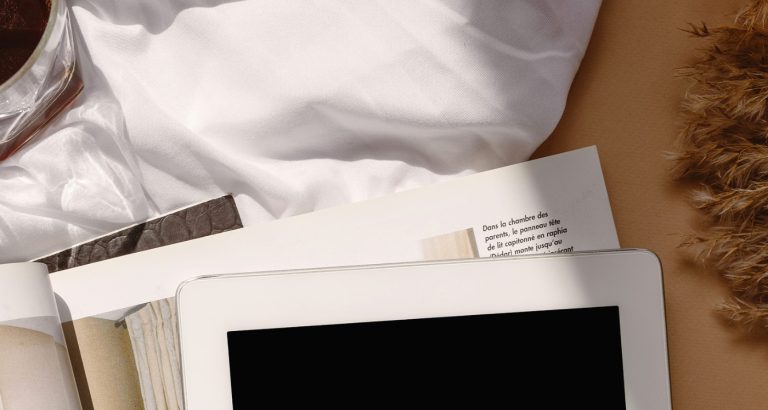Your Life After Mortgage is Paid Off [What to do and What Changes]
![Your Life After Mortgage is Paid Off [What to do and What Changes] 1 happy woman who just paid off her mortgage explains what Your Life After Mortgage is Paid Off can be like and what to expect](https://herpaperroute.com/wp-content/uploads/2021/11/Your-Life-After-Mortgage-is-Paid-Off.jpeg)
Your life after mortgage is paid off is something many people wonder about. Everyone thinks the American dream is to buy a home. But the actual dream is to own that home. No payments, no monthly bills to remind you that the bank still owns the residence. Sounds blissful.
What would that even be like? Life after a mortgage is paid off is something most people can’t imagine.
As an affiliate partner of various brands and sponsored content, HerPaperRoute may earn commission on qualifying purchases. Disclaimer
Maybe you like the idea of paying off your mortgage, but you’re struggling with why. Is it really that important?
How does life change when you no longer owe money for your house? I’ll show you what having a paid-for home can do for your career, mental health, and finances.
Do I acquire a deed after my mortgage is paid off?
What happens when you make that final payment? There are a few things that can occur depending on your situation.
According to real estate experts, either a release deed or a release of mortgage document should be sent. It may go to you or your town’s real estate filing office or whoever keeps track of deed documents.
All these are just documents proving that you now own your home free and clear. Depending on your state, you should receive a statement from your mortgage provider showing you no longer owe any money on your house, as well as a paper showing your promissory note is canceled, and the deed to your home.
Of course, you can always request this paperwork if, for some reason, you don’t receive it. If you’re unsure, call up your bank and they should be able to help get you the first two documents.
What happens to your credit score if the mortgage is paid off?
Since you no longer have any debt associated with your home and won’t make mortgage payments, does your credit go down the drain?
The majority of experts say that paying off a house does not produce enormous changes for your credit. Not to say you won’t notice some slight differences, but it depends on your credit history and mix of other debt as well.
Paying off your mortgage is something to be proud of. You took care of a substantial debt responsibly and can be trusted to pay back what you owe.
What to do after the mortgage is paid off?
You made the last payment. You received the appropriate documents. And now…what?
What do you do when you’ve tackled such a huge financial task, and you’ve achieved something that many aspire to? This is something that isn’t discussed enough, probably because it takes such a long time and many never achieve this goal.
Here’s what life after a mortgage is paid off can be like.
Celebrate!
You just got rid of what was likely your most significant monthly payment – for good. This is huge, and you should take the time to congratulate yourself! You can do this in a lot of ways.
You might try saving up the money you would have paid for your mortgage and putting it towards a vacation.
Or if you have other big financial goals that require savings, at least treat yourself to a nice dinner. Mark this milestone with some reward for all your hard work.
It’s also okay to tell those close to you that you’ve accomplished this. While you may not want to tell the whole world, it can be nice to share your good news with a close friend or family member who will be proud of you and help you appreciate the moment even more.
Invest more in retirement
Your mortgage likely costs you thousands upon thousands a year. With that behind you, it’s time to invest more into retirement funds. Life after a mortgage is paid off may include maxing out your IRA each year, and saving up as much as possible for the future.
You can also begin to think about the home you’d like to retire in. If that’s the home you just paid for, you’re all set!
If not, make plans for what type of home you’d like to live out your retirement years in, and begin saving if it will require more money. Of course, it’s best not to go into mortgage debt again once you’re out, so if you plan on selling your current home, try saving up the difference it will take to afford your dream house.
Pay off other debts
When your house payment is behind you, you can turn your attention to any other remaining debts, and remove them quickly from your life. Think of it this way: if you can pay off a large debt like a mortgage, tackling other things should be easy in comparison.
If you’re really motivated, try taking the entire amount you would have paid for your house each month and using that to pay off your other debts.
It might not even affect your life much because it will feel like you’re making the same payment you’ve been making for years. Watch your debts shrink and disappear in no time!
Build a bigger emergency fund
If you have some emergency savings, but you’ve been waiting for the chance to pile up some more cash, now is your chance. First, try saving up a few more months’ worth of expenses, or possibly a whole year’s worth.
The larger your emergency fund, the more secure you are financially if you need to pay for something unexpected.
When building your emergency fund, you can think of it in terms of monthly expenses and salary. Still, if you’re creating a larger fund, you might instead want to add in what it would cost for a significant emergency, such as buying a new car or something else expensive but necessary.
Related: Reasons To Use Your Emergency Fund Without Guilt
Seeing your emergency fund in this way is just a different side of the same coin. After you have your basic emergency fund and you’re adding on more, it helps when you make it personal to your situation.
Build wealth
Building wealth is the place everyone wants to get to. Life after a mortgage is paid off means having a chance to build wealth rather than just making payments.
It can make you feel that you’re getting somewhere financially. Without a mortgage, those savings and investments will happen faster, and you’ll be more prepared than ever for future years.
Related: Wealth-Building Habits To Start ASAP
Building wealth can happen in many ways. There are, of course, your retirement accounts.
But beyond this, you may also choose to invest, open an HSA account, or look into purchasing more real estate. Focus on placing your money into something that will make you more money in the future.
Track all of your extra money using this free financial dashboard. You can set savings goals, track your retirement, and net worth all in one place.
How does life change after a paid-off mortgage?
While it might not seem like paying something off could radically change your life and future, it can!
Not only will you experience more security and freedom, but you may find that your attitude and outlook on life changes quite a bit, as well. For the first time in years, you’ll be able to call the shots about your money completely.
Security
There’s a lot that happens when you pay off such a large debt. One of the best benefits is the added security.
When you officially own your house, no one can come and take it away from you. You no longer owe the bank or lender any money and can rest easy knowing that your house belongs to you.
Related: Things You Still Need to Pay Even Without a Mortgage
Another excellent security benefit is you now have extra cash that you didn’t have before. If you were living paycheck to paycheck previously, no mortgage frees up your budget quite a bit.
Last, you can make extra income from your home. Should you choose to, you can rent it out, knowing that the rental income is profit and not for paying off the home debt.
Or, if you sell your home, you’ll be making a lot more money than you would if you’d sold it while still having a mortgage. Simply put, no house payment means your potential for making money is a lot higher.
Freedom
Freedom is probably the thing that people associate most with life after a mortgage is paid off. It’s a huge motivator. But freedom to do what?
- To take some risks in your career. Without a mortgage to pay for, you have the chance to examine your job with more clarity. Do you like the work you do?
Would you rather be doing something else? If you find that you’re not happy with your current career, you have the means to change things up should you choose to switch jobs.
Now that your budget doesn’t include the added costs of a house payment, you can afford to make a career move. You may choose to work in a different department, start your own business, or ask for a promotion. Lower monthly payments can give you the courage to reach for what you really want, even if it pays less money.
- To travel. Vacation, anyone? With no mortgage, you can quickly save up for trips – debt-free. Creating a vacation fund and saving even a tiny percentage of what you would have paid for a mortgage can easily afford you the opportunity to see new places.
Plus, with low home costs, you might be able to afford to work fewer hours, giving you the free time you’ll need to see the world. Rather than putting this off, begin planning.
Find out what it will cost to go to the places you want to, and how much money you’ll need. Begin saving and booking those flights!
- To be generous. Your extra money can go towards helping those in need. If there’s a charity or foundation you care about, you’ll be able to give a lot more than you could before.
You not having a mortgage could make the lives of countless others better! Begin researching organizations that make a difference in your community or state.
Then, set aside a certain amount for giving for the year. After seeing how your money helps others, you may choose to increase your giving in the future.
- To build wealth. Using the power of no monthly mortgage, you can easily invest more and build wealth much faster. Your savings rate can increase dramatically, and who knows?
It could lead to you retiring early or having a much better retirement than you originally planned. The point is you will be free to save your money rather than paying back a lender.
- To fulfill dreams. Maybe you’ve been working hard for years, looking forward to the day you’d own your home. Now you’re there! Since you no longer need to work towards this goal, you can spend your time on other things.
What dreams have you put on hold while paying off this debt? Do you have a hobby you’d like to spend more time on? Perhaps you want to volunteer? Spend more time with family? Now, you can fulfill the dreams you may not have had the time to focus on as much as you liked in the past.
In a way, paying off your home gives you a chance to examine what really matters and recreate your life around what you believe is worth your time. When your bills cost less than ever, you have freedoms you may have never thought possible.
What are the responsibilities of having a paid-off house?
Although you might be tired of the financial responsibilities of homeownership, there are a few things you’ll need to do when you own a paid-for home.
Don’t worry, they’re minimal, and they’re all things that you were used to paying for and dealing with when you had a house payment, just in a different way.
The change is, now these payments won’t be accompanied by a large house bill. It’s all part of life after a mortgage is paid off.
Property taxes
Yes, property taxes still exist even after your last mortgage payment. Property tax expectations vary by state, county, and the area you live in, so you need to find out how often they need payment and the cost.
(It might be once a year, once a quarter, or some other time frame.) Set this up right away, so you don’t miss any payments you’re responsible for.
Maintenance
Something will inevitably break in your home at some point. For example, you’ll need a new roof, or the air conditioner might need replacing, and so on.
Hopefully, you’ve thought ahead and have some savings for home emergencies. If not, take advantage of not having that house payment, and store up some cash for a rainy day.
The average cost of home maintenance per year is about 1-4% of what the house is worth. Plan this into your budget each month to avoid expenses you aren’t prepared for. That way, you can avoid going back into debt.
Home Insurance
Insurance requirements change when you no longer have a mortgage; you don’t usually have to have home insurance. But you really shouldn’t go without it!
Not having insurance means that you’d be responsible for paying for anything insurance would typically cover, so it is well worth it to continue making this payment.
To keep current on your home insurance, insurance experts say you’ll need to get your bank’s name off your policy and spend some time looking at your coverage to see if you want to adjust anything.
You might want different limits now that you are in complete control of your insurance coverage.
Don’t stop budgeting
Your budget will change dramatically when you no longer carry a mortgage. But that doesn’t mean you shouldn’t budget!
Budgeting just involves planning for your money, and now, more than ever, you need one. Continue to organize your expenses, spending, and savings categories, knowing that now you have a lot more cash to work into your plans.
You can add new things to your budget or add more to the spending and savings categories. The point is, when you’ve done such a financially responsible thing, you don’t want to waste all the extra money and financial freedom you now have.
Make new goals
Now that you have achieved this incredible goal, you’ll want to set a new one. Why?
Because as humans, we need to focus on something and know where we’re going. Create a new goal to help you stay on track as you begin a new phase of life.
Related: Tips for Following Through on Financial Goals
Final Thoughts
Paying off your home as soon as possible is one of the best financial decisions you can make. When you no longer have this sizeable monthly expense, you’re way ahead of most people.
As you read about a paid-off home, you may wonder how you can get rid of your mortgage faster. Some people make double payments, and others pay off a bit of the principal each year.
There are plenty of creative options for removing your mortgage from your life forever.
Also, remember that some things you shouldn’t put off until your mortgage is paid for. For example, invest in your relationships with others and think about your career path now rather than later.
While your mortgage frees up a lot of time and energy, you can make your life better in the present, too.
Life after a mortgage is paid off is an experience unlike anything else. You might feel relief from no longer carrying such a large payment or newfound confidence in your abilities to manage money. It’s something to celebrate and look forward to.
Related Articles:
![Your Life After Mortgage is Paid Off [What to do and What Changes] 4 exterior of house showing life after a mortgage is paid off](https://herpaperroute.com/wp-content/uploads/2021/11/your-life-after-you-pay-off-your-mortgage.jpg)
Follow along on Instagram!


![Your Life After Mortgage is Paid Off [What to do and What Changes] 2 exterior of house showing life after a mortgage is paid off](https://herpaperroute.com/wp-content/uploads/2021/11/your-life-after-you-pay-off-your-mortgage-180x180.jpg)
![Your Life After Mortgage is Paid Off [What to do and What Changes] 3 masterclass become a content creator](https://herpaperroute.com/wp-content/uploads/2024/09/become-a-content-creator-free-class.jpg)
![Your Life After Mortgage is Paid Off [What to do and What Changes] 5 entrepreneur planner profit business planner notion](https://herpaperroute.com/wp-content/uploads/2024/02/profit-business-planner_lg-copy.jpg)





